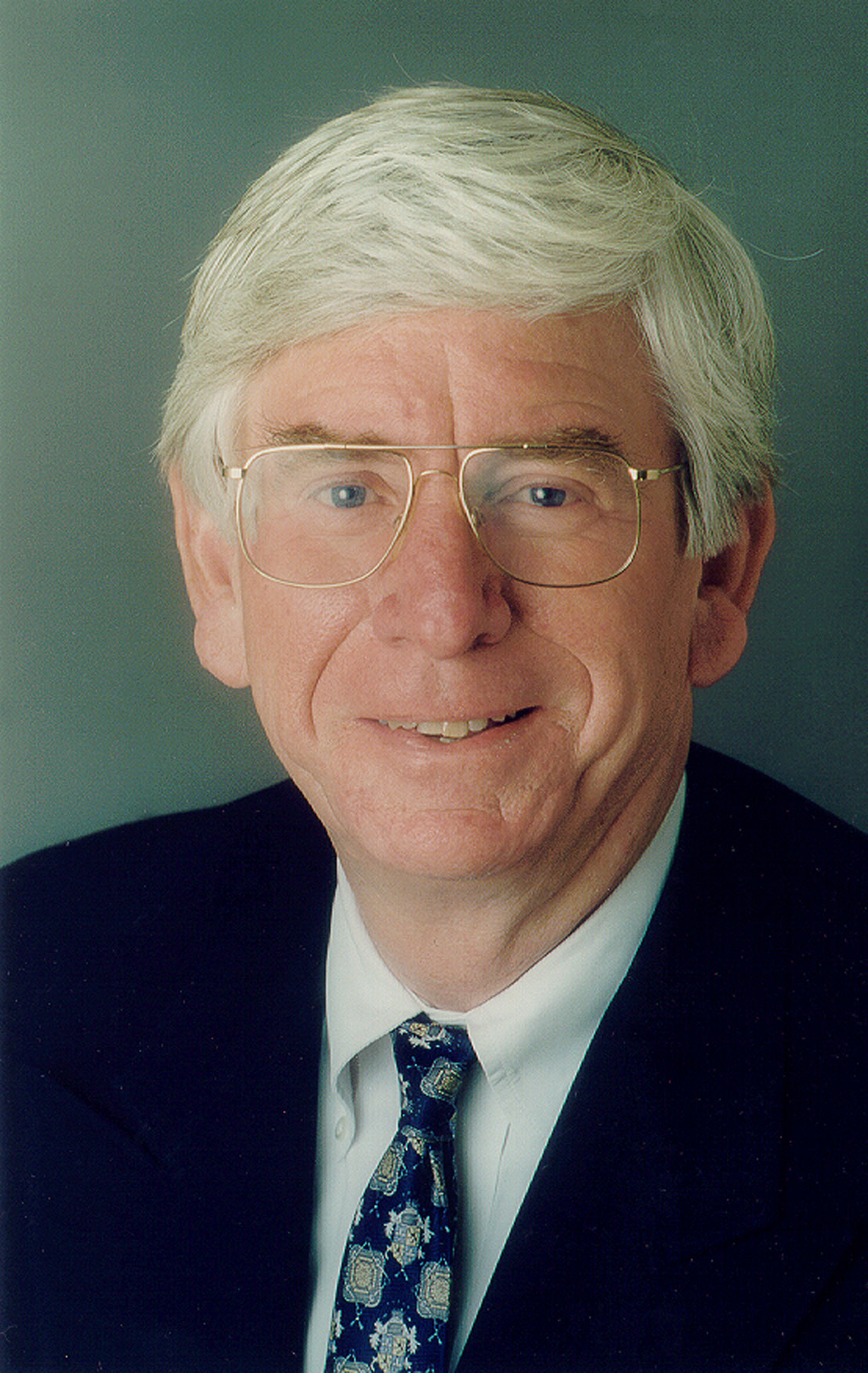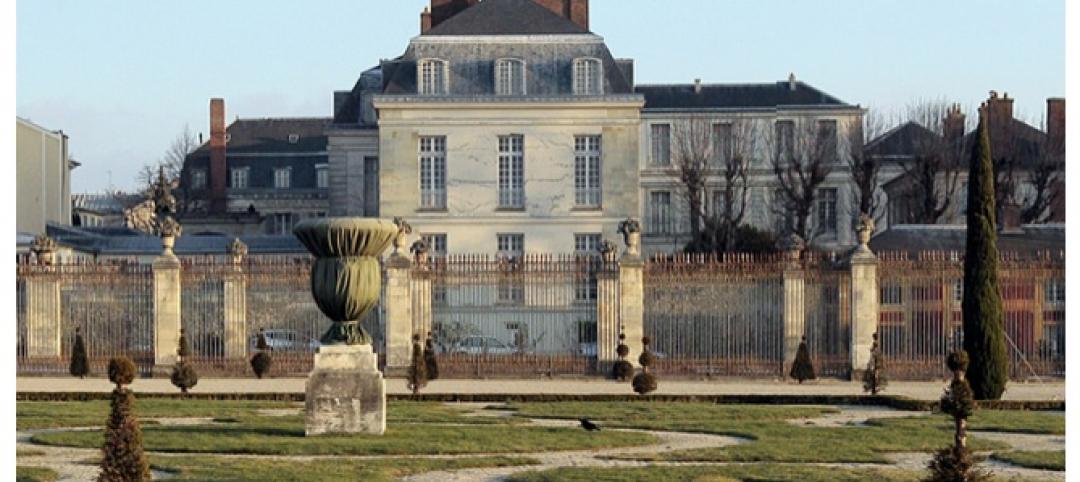Thornton Tomasetti, the international engineering firm, announces that Founding Principal Charles H. Thornton, Ph.D., P.E., Hon. AIA, Hon. ASCE, NAE is among five individuals being honored by the American Society of Civil Engineers’ Outstanding Projects and Leaders (OPAL) program for their lifetime achievements. The award will be presented at a black-tie gala at the Renaissance Arlington Capital View Hotel, Arlington, Va. on March 21.
The OPAL Lifetime Achievement Award is given to civil engineers who “represent a model of achievement to which future generations of engineers aspire to match or exceed.”
Thornton is being honored for his numerous contributions to the field of design. Regarded as one of the world’s preeminent structural engineers and educators, Thornton has been involved in the design, construction and analysis of projects around the world, many of which have set industry standards for innovation and creativity.
His signature projects include the Northwestern Atrium Center (now the Citigroup Center), United Airlines Terminal One at O’Hare Airport and United Center/Bulls and Blackhawks Arena, all in Chicago, Ill.; the Chifley Tower in Sydney, Australia; Tampa City Center in Tampa, Florida;; American Airlines superbay hangars in Los Angeles and San Francisco, Calif.; and the Petronas Twin Towers in Kuala Lumpur, Malaysia.
Thornton, currently chairman of Charles H. Thornton & Company LLC, Straam Inc. and AECOS, Ltd., is a founding principal and former co-chairman of Thornton Tomasetti. He currently serves as a consultant to Thornton Tomasetti.
Thornton is the founder of the ACE Mentor Program, which he established in 1993. ACE has offered guidance to more than 40,000 inner-city high school students in 106 cities around the country and has acquainted these students with the challenges and rewards offered by careers in architecture, engineering and construction. Thus far it has awarded more than $6 million in scholarships. In 2011, the program received a Presidential Award for Excellence in Science, Mathematics and Engineering Mentoring.
Thornton’s numerous career accolades include the Civil Engineer of the Year Award from ASCE’s Metropolitan Section in 1990, the Fazlur R. Khan Lifetime Achievement Medal from the Council on Tall Buildings and Urban Habitat in 2012, Hoover Medal in 2002, the Leonardo da Vinci Award for Leadership and Management Excellence from the Professional Services Management Association in 2003, the Benjamin Franklin Medal in Civil Engineering from the Franklin Institute in 2003 and the Golden Eagle Award from the Society of American Military Engineers in 2003.
Thornton earned a bachelor’s degree in civil engineering from Manhattan College in 1961, a master’s degree, also in civil engineering, from New York University in 1963 and a doctorate in structural engineering and engineering mechanics from New York University in 1966. +
Related Stories
| Jan 4, 2011
Product of the Week: Zinc cladding helps border crossing blend in with surroundings
Zinc panels provide natural-looking, durable cladding for an administrative building and toll canopies at the newly expanded Queenstown Plaza U.S.-Canada border crossing at the Niagara Gorge. Toronto’s Moriyama & Teshima Architects chose the zinc alloy panels for their ability to blend with the structures’ scenic surroundings, as well as for their low maintenance and sustainable qualities. The structures incorporate 14,000 sf of Rheinzink’s branded Angled Standing Seam and Reveal Panels in graphite gray.
| Jan 4, 2011
6 green building trends to watch in 2011
According to a report by New York-based JWT Intelligence, there are six key green building trends to watch in 2011, including: 3D printing, biomimicry, and more transparent and accurate green claims.
| Jan 4, 2011
LEED standards under fire in NYC
This year, for the first time, owners of 25,000 commercial properties in New York must report their buildings’ energy use to the city. However, LEED doesn’t measure energy use and costs, something a growing number of engineers, architects, and landlords insist must be done. Their concerns and a general blossoming of environmental awareness have spawned a host of rating systems that could test LEED’s dominance.
| Jan 4, 2011
LEED 2012: 10 changes you should know about
The USGBC is beginning its review and planning for the next version of LEED—LEED 2012. The draft version of LEED 2012 is currently in the first of at least two public comment periods, and it’s important to take a look at proposed changes to see the direction USGBC is taking, the plans they have for LEED, and—most importantly—how they affect you.
| Jan 4, 2011
California buildings: now even more efficient
New buildings in California must now be more sustainable under the state’s Green Building Standards Code, which took effect with the new year. CALGreen, the first statewide green building code in the country, requires new buildings to be more energy efficient, use less water, and emit fewer pollutants, among many other requirements. And they have the potential to affect LEED ratings.
| Jan 4, 2011
New Years resolutions for architects, urban planners, and real estate developers
Roger K. Lewis, an architect and a professor emeritus of architecture at the University of Maryland, writes in the Washington Post about New Years resolutions he proposes for anyone involved in influencing buildings and cities. Among his proposals: recycle and reuse aging or obsolete buildings instead of demolishing them; amend or eliminate out-of-date, obstructive, and overly complex zoning ordinances; and make all city and suburban streets safe for cyclists and pedestrians.
| Jan 4, 2011
An official bargain, White House loses $79 million in property value
One of the most famous office buildings in the world—and the official the residence of the President of the United States—is now worth only $251.6 million. At the top of the housing boom, the 132-room complex was valued at $331.5 million (still sounds like a bargain), according to Zillow, the online real estate marketplace. That reflects a decline in property value of about 24%.
| Jan 4, 2011
Luxury hotel planned for Palace of Versailles
Want to spend the night at the Palace of Versailles? The Hotel du Grand Controle, a 1680s mansion built on palace grounds for the king's treasurer and vacant since the French Revolution, will soon be turned into a luxury hotel. Versailles is partnering with Belgian hotel company Ivy International to restore the dilapidated estate into a 23-room luxury hotel. Guests can live like a king or queen for a while—and keep their heads.
| Jan 4, 2011
Grubb & Ellis predicts commercial real estate recovery
Grubb & Ellis Company, a leading real estate services and investment firm, released its 2011 Real Estate Forecast, which foresees the start of a slow recovery in the leasing market for all property types in the coming year.
| Jan 4, 2011
Furniture Sustainability Standard - Approved by ANSI and Released for Distribution
BIFMA International recently announced formal American National Standards Institute (ANSI) approval and release of the ANSI/BIFMA e3-2010 Furniture Sustainability Standard. The e3 standard represents a structured methodology to evaluate the "sustainable" attributes of furniture products and constitutes the technical criteria of the level product certification program.










